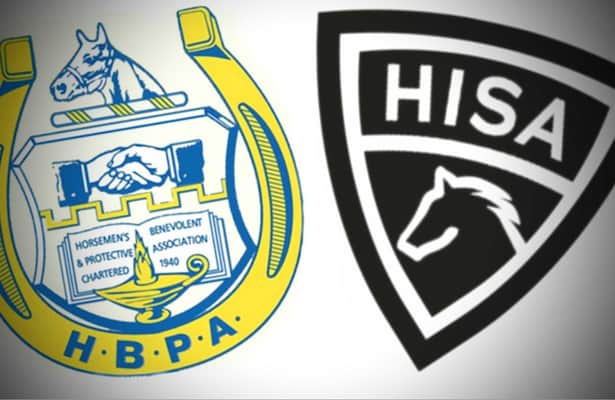The National Horsemen’s Benevolent & Protective Association filed a petition for rulemaking Monday under the Horseracing Integrity and Safety Act, requesting the Federal Trade Commission to create no-effect thresholds.
A no-effect threshold, also known as a no-effect screening limit or no-effect cutoff, is a laboratory-testing detection level below which no owner or trainer will be punished for innocent and pharmacologically irrelevant concentrations of foreign substances that have no effect on a horse.
The no-effect thresholds would be required to be used by HISA’s enforcement arm, the Horseracing Integrity & Welfare Unit. The problem of HIWU unfairly prosecuting blameless horsemen for irrelevant findings as low as one-trillionth of a gram per milliliter is plaguing the horse-racing industry. The National HBPA is calling on the FTC to end this injustice.
“The National HBPA is committed to doing everything it can to protect horsemen,” CEO Eric Hamelback said. “We need to reshape the HIWU system into one that does not punish blameless trainers and their owners for barely detectible levels of foreign substances. The current process is harming the horse-racing industry by publicly shaming as dopers good men and women with reputations for integrity in the sport. Worst of all, these ‘adverse’ analytical findings are doing nothing to protect the safety of horses. We hope that with this positive change, the HISA Authority will be able to focus on regulations that actually catch those they proclaim to be cheating rather than wasting valuable time and resources adjudicating irrelevant concentration findings.”
The petition mentions that other federal agencies commonly utilize no-effect thresholds: “For example, the Department of Transportation, in its drug testing of commercial airline pilots, … allows 100 nanograms per milliliter of oxycodone. By contrast, HIWU publishes a zero-tolerance oxycodone policy.” Also, “the EPA measures foreign substances in drinking water in micrograms per milliliter, or one millionth of a gram per milliliter. That is one million times larger than the picogram per milliliter level for which some HIWU laboratories are testing. The EPA recognizes that reporting picogram levels of foreign substances in American drinking water would needlessly alarm the public of the presence of foreign substances that the EPA knows have no effect.”
“Scientists know that infinitesimally small amounts of foreign substances are present throughout our world. In equines, they usually come from uncontrollable environmental transfers and do not affect the performance of the horse. The FTC must follow the science and adopt no-effect thresholds,” National HBPA president Dr. Doug Daniels said.
The petition tells the stories of several horsemen whose reputations were affected after HIWU detected scant traces of substances that are pervasive in the human world. Mike Lauer is a 72-year-old trainer with five decades of licensure who spent almost $50,000 and five months trying to clear his name from HIWU allegations that cost him even more in lost clients. Ultimately, HIWU concluded that a groom who had ingested his prescription diabetes medication Metformin at lunch then unintentionally contaminated Lauer’s horse by touching its mouth while fitting it with a bit and bridle. HIWU still suspended Lauer for 75 days and fined him $2,600.
“These horror stories are pushing other trainers, like Rusty Arnold, to simply admit to violations they did not commit just to get HIWU off their back,” the petition said. Arnold recently accepted a seven-day suspension, a $1,000 fine and a lost $40,000 purse for his horse’s owner for a scant finding of three parts per billion per milliliter urinary detection of a metabolite of Tramadol. Arnold’s unjust punishment and widely disseminated statement urging horsemen to “speak up together to regulators – loudly” caused a furor in the industry. The National HBPA gathered and included in the petition signatures from over 750 horsemen, decrying HIWU’s unfair treatment of Arnold and demanding no-effect thresholds.
Arnold said, “Horses are grazing animals. They eat dirt. They love to lick smelly wet spots in stalls. They eat manure. They lick the walls of ship-in stalls. It is unreasonable to think we can control this. I applaud the National HBPA for asking the FTC to bring some common sense and fairness to HIWU’s system of gotcha chemistry.”
Although HISA proposed a small number of no-effect thresholds in rule changes as recently as May, the modifications do not go far enough. The petition calls out HISA for violating the law by not publishing no-effect thresholds for the overwhelming majority of the substances on its list of permitted substances. As a result, the petition presses the FTC to “issue allowable limits itself to bring the HISA Authority’s list into compliance with the act.”
Peter Ecabert, general counsel of the National HBPA, concluded, “By not issuing allowable limits, the HISA authority is flouting the law. The National HBPA calls upon the FTC to do its job to correct this violation.”

